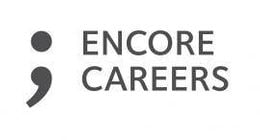Find Jobs With Social Purpose in Health Care
Health care offers opportunity for workers from other fields
In the midst of trying to improve access to health care, the United States is facing a potential shortage of nurses and other skilled health professionals.
At the same time, many boomers are looking forward to putting their skills to use serving the greater good.
While an aging population contributes to the potential strain on the health care system, boomers and older adults can help by pursuing second careers that combine a desire for greater meaning with income and social purpose.
New Health Care Occupations
In its 2010 study “How Boomers Can Help Improve Health Care,” Civic Ventures and a panel of national experts identify new occupations in the health care industry, which serve both the needs of older workers and society at large.
These new roles fit criteria established by Civic Ventures for second careers, with jobs that are paid, personally meaningful, beneficial to society, building on life and work experience, affording time commitment flexibility and offering the possibility of additional schooling or certification.
- Community health worker. Provides health education, guidance and some basic direct service to underserved populations, promoting cost-saving prevention and addressing inequities in care.
- Chronic illness coach. Offer guidance to chronically ill individuals, helping them better manage the stress that can lead to depression and the need for additional medical treatment.
- Medications coach. Assist individuals with complicated medication regimens to guard against harmful, potentially costly, drug results.
- Patient navigator/advocate. Aid patients and their families better understand preventative measures and treatment options, leading to more efficient use of the health care system.
- Home and community-based service navigator/advocate. Help patients access support services to remain living at home and potentially avoid more expensive care in assisted living or nursing facilities.
- Home modification specialist. Create safe homes that support independent living for seniors and the disabled, conceivably preventing costly institutionalization.
Even More Opportunity
There are many other opportunities in the health care industry for experienced people seeking second careers. These include professionals who transition from successful business careers to become quality assurances officers and data analysts improving clinical outcomes and managing costs.
There are also opportunities for physicians and nurses to transition to flexible second careers as adjunct faculty or coordinators implementing practices to prevent costly medical errors.
Moving into these new career tracks has allowed some to use their skills in a more fulfilling way.
“I wanted to do something that had meaning. I wanted to work with seniors, with the disabled, with the sick, because I had been there,” said Greg Bailey, former school administrator now a chronic illness coach, in an interview with Civic Ventures.
“I felt I had the background, knowledge and ability to help others.” Lynn Sprafka, a former nursing home administrator who is now patient navigator, told Civic Ventures. “There is a large communication gap between the family, the health care providers and the patient. The need is huge. ”
These roles help patients become more informed and potentially healthier, which would require less medical care. The promise of cost saving is well worth further exploration of these and other vital second careers.
Based on editorial content provided by Civic Ventures from its study "How Boomers Can Help Improve Health Care."


